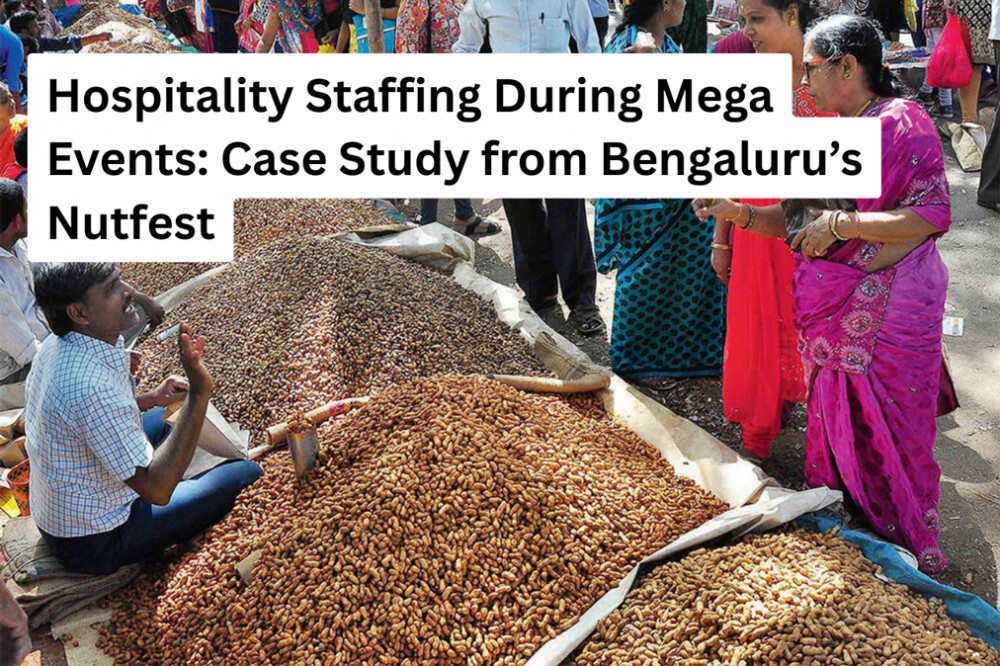
Indian Hospitality Talent Abroad: What’s Driving Migration?

In the past few years, the hospitality field in India has seen a big new thing: many of its best workers—like chefs, hotel people, and service folks—are moving to work in other countries. From busy kitchens in London to fancy hotels in Dubai and ships travelling the world's seas, Indian hospitality experts are starting to be more seen and needed.
But why is this happening? Why are Indian hospitality folks going overseas, and what is shaping their jobs in other places? Let's really look into this new wave, see why the world wants Indian hospitality skills, and think about what it means for the field's future.
The Worldwide Love for Indian Food and Traditions
A key reason for this movement is the world's love for Indian food and wellness practices. With turmeric drinks on New York menus and Ayurvedic care getting common in Europe, Indian ways have turned from new to key.
This is creating more jobs for Indian chefs than ever out there. Places like restaurants, resorts, and health spots all over the world want real Indian food experts who can bring India's full, rich tastes to people everywhere. Whether it's a top-level Indian meal in London or a local dish in Sydney, Indian chefs are leading this food change.
Data from India's ministry shows a decent rise in the last ten years in Indian nationals working jobs like hospitality and tourism abroad. Places in the Middle East, Europe, Southeast Asia, and North America keep hiring Indian hospitality pros because they can change, work hard, and speak many languages.
Some big hospitality moving trends from India include:
- Gulf countries (UAE, Qatar, Oman): Chosen for no-tax income and being close to India.
- Europe (UK, Germany, France): Good for cooking schools, world-level work, and ways to stay forever.
- Southeast Asia (Singapore, Malaysia): Liked for jobs on ships, big hotels, and new food and drink places.
- Australia and Canada: Liked even more now for long-term moving and living, mostly through skilled work visas.
So, why do so many Indian hospitality workers move?
It's because of both push and pull parts.
1. Better Pay and Living
An entry-level chef or hotel worker in India may get ₹15,000 to ₹25,000 a month. The same job outside India can bring in ₹1 lakh to ₹2.5 lakhs a month, not counting extra money. This big pay gap is a huge reason.
2. Quicker Job Moves
Many Indian hospitality pros feel stuck at a certain point in their jobs back home, mostly in smaller cities. Working internationally boosts their resume, and they get to learn new skills and get high-level jobs in 3-5 years, chances that might take 10 years at home.
3. Skill Recognition and World-Level Proof
Jobs outside India often help Indian workers get world-renowned certificates, like HACCP, ServSafe, or WSET (for wine experts). This adds respect and ease to their careers.
4. Family Moving and Staying Forever
Places like Canada, Australia, and New Zealand have paths to stay forever for skilled workers. Many choose to move not just for work but to build safe, long-term lives for their families.
5. Top Status and Self-Branding
Working in a top hotel in Dubai or on a European ship brings a lot of trust and opens doors to future chances in giving advice, starting businesses, and even food media.
Indian Chefs Abroad: The Food Ambassadors
When we think of Indian chefs working away from home, it's not just about jobs. They are like cultural envoys. Indian chefs are big names around the world now; these chefs do more than cook. They tell stories with spices.
Hotels, small eating spots, airlines, and big ships want Indian chefs to bring real and mixed Indian tastes to their menus. There is more call for local types of food, like a rice dish from Hyderabad, fish curry from Goa, or snacks from Gujarat. This deep know-how is special to Indian chefs.
Also, with more people eating only vegan or gluten-free food, Indian chefs are becoming more in line with today’s health needs. Many Indian meals, like bean curry, chickpea stew, rice cakes, and tapioca dishes, are good fits for healthy eating today. This makes Indian chefs very useful around the world.
How Cooking Schools Help
Places like the IHM (Institute of Hotel Management), cooking schools, and private teaching spots are changing what they teach to meet the world's needs. They include learning about other countries, working abroad, and other languages. Lots of them help students find work in hotels overseas.
This planned path is making more hospitality workers move from India, especially the young ones who see working abroad as a first step, not the last one.
Hard Parts for Migrant Hospitality Workers
Moving isn’t always easy. Some common hard parts include:
Being taken advantage of at work because they don’t know the rules or have no cover in some places.
- Feeling a shock from the new culture, mostly in Western places.
- Being away from family, with many living alone overseas for a long time.
- Depending on a visa, which can limit job changes and growth.
- But, many in hospitality overcome these through community help, more skills, and legal advice.
What does this mean for Indian Hospitality Back Home?
While it may look bad as people leave, it bears big plus sides for India:
- Money sent home helps out a lot.
- Those who come back bring new skills, boost training, and start new businesses.
- New cross-cultural bonds form when these chefs or hotel folk start places in India with money from abroad.
Also, tools like Foodism Connect, job sites for hospitality, and state-backed plans like Skill India are making ways for local skills to meet world challenges.
The Future: Global Indians Leading New Things in Hospitality
Looking ahead, it’s not just about finding jobs. Indian hospitality folks are starting their things abroad—from food vans in Canada to health spots in Bali.
More Indians are getting top jobs in big hotel groups. They lead services, push for greener ways, and focus on hiring various people.
In the digital age, they also become online idols, teachers, and business owners through Instagram, YouTube, and places like LinkedIn and Foodism Connect.
Moving as a Way to Change
So, the world's wanting Indian hospitality help is not just a short trend. It’s a big change in how the world sees Indian skills, tastes, and service ways. From young chefs in Chandigarh to spa experts in Kerala, the dream to work abroad is real. It's now possible, well-planned, and fulfilling.
Knowing why these workers move is key to helping this change go well. With smart rules, safety, and help, this shift can boost people, make global dining and hospitality better, and reshape how the world sees India’s food and service style.
Give your career a kickstart! Download Foodism Connect and get started today.
Related Blogs

The Rise of Boutique Hotels: Recruiting for Experience, Not Size
73 Views

Top 5 Hospitality Roles Most in Demand This Quarter
71 Views

Hospitality Staffing During Mega Events: Case Study from Bengaluru’s Nutfest
86 Views

Festival Hospitality: What Food Events Teach About Guest Management & Staffing
194 Views

Little Guests, Big Smiles: How Hotels Design Family-Friendly Experiences
171 Views